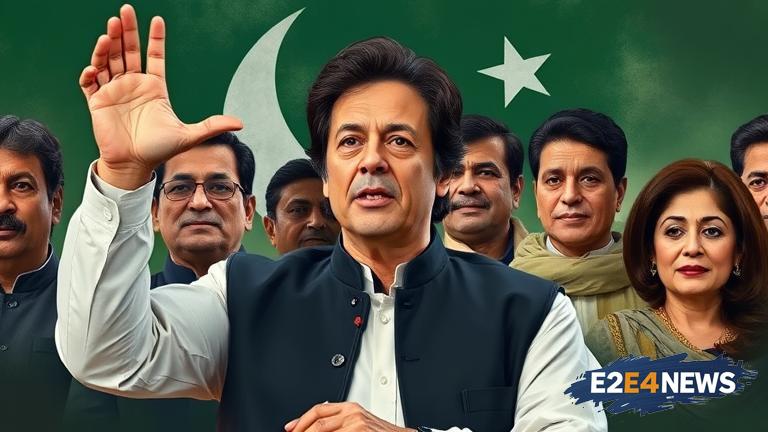In a recent development, Pakistan’s former Prime Minister Imran Khan has called for legal action against Maryam Nawaz, the daughter of former Prime Minister Nawaz Sharif, and other opposition leaders. The demand comes after Maryam Nawaz and others allegedly denied the provision of jail facilities to Imran Khan’s supporters. The situation has sparked widespread controversy and has further escalated the political tensions in Pakistan. Imran Khan’s party, the Pakistan Tehreek-e-Insaf (PTI), has been at odds with the current government, led by Prime Minister Shehbaz Sharif, over various issues. The PTI has accused the government of unfairly targeting its leaders and supporters, while the government has maintained that it is taking action against those who have broken the law. The denial of jail facilities to Imran Khan’s supporters has been seen as a provocative move by the opposition, and Imran Khan has vowed to take action against those responsible. The situation has also sparked concerns about the human rights of prisoners in Pakistan, with many calling for an end to the politicization of the justice system. The PTI has announced plans to hold protests and rallies across the country to demand justice for its supporters and to condemn the government’s actions. The government, on the other hand, has warned against any attempts to disrupt law and order, and has vowed to take action against those who engage in violent or provocative behavior. The situation remains tense, with many fearing that the situation could escalate into widespread violence. The international community has also been watching the situation closely, with many calling for calm and restraint. The United States, the European Union, and other countries have urged all parties to engage in dialogue and to find a peaceful resolution to the crisis. The Pakistani military has also issued a statement calling for calm and restraint, and has urged all parties to respect the law and the constitution. Despite the tensions, many Pakistanis remain hopeful that a peaceful resolution can be found, and that the country can move forward without further violence or instability. The situation is complex, with many different factors at play, and it remains to be seen how events will unfold in the coming days and weeks. One thing is certain, however: the situation in Pakistan is highly volatile, and any further escalation could have serious consequences for the country and the region. The government and the opposition must find a way to work together to address the underlying issues and to find a peaceful resolution to the crisis. The people of Pakistan deserve nothing less, and it is the responsibility of the country’s leaders to ensure that their rights and freedoms are protected. The situation is a test of the country’s democratic institutions, and it remains to be seen whether they will be able to withstand the pressure. The international community must also play a role in supporting Pakistan’s democratic development, and in encouraging all parties to engage in peaceful and constructive dialogue. Only through dialogue and cooperation can the country move forward and build a brighter future for all its citizens. The current situation is a reminder that democracy is a fragile and precious thing, and that it must be nurtured and protected at all costs. The people of Pakistan have the right to demand better from their leaders, and it is the responsibility of the government and the opposition to ensure that their rights and freedoms are respected. The situation is a challenge to the country’s leaders, and it remains to be seen whether they will be able to rise to the occasion and find a peaceful resolution to the crisis.
